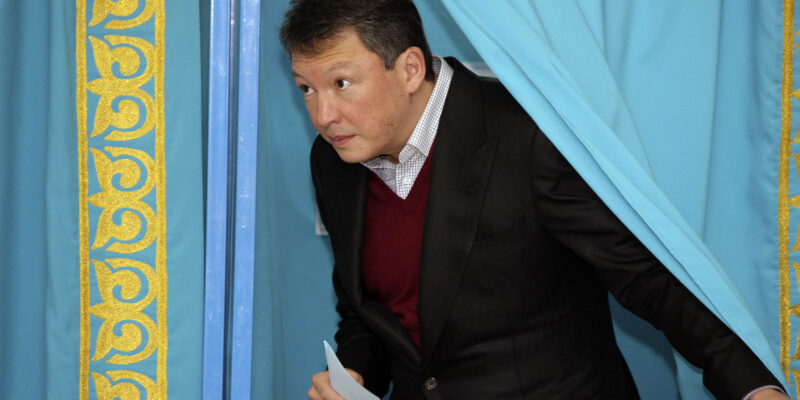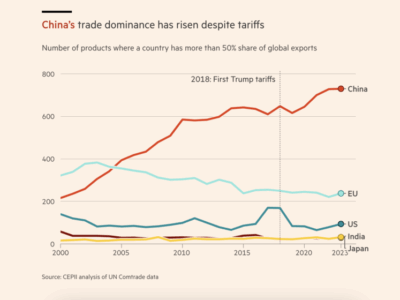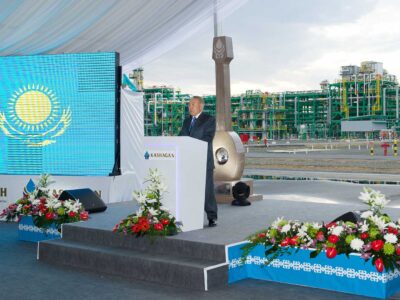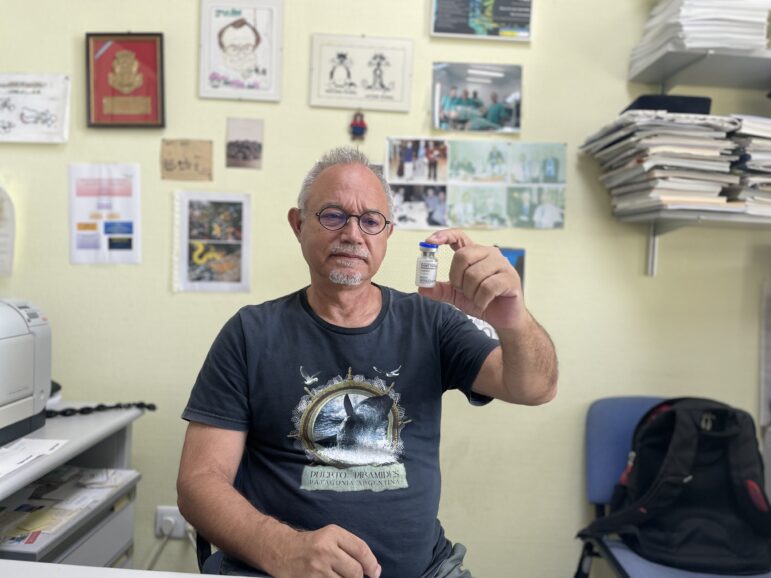
The billionaire son-in-law of former Kazakhstan president Nursultan Nazarbayev is reportedly in talks to pay about $1 billion to the state in connection with a government probe.
Bloomberg has reported that Timur Kulibayev, a former top energy sector official married to Nazarbayev’s second daughter Dinara, is negotiating a deal that is part of an investigation into wealth accumulated during his father-in-law’s rule.
Under such an agreement, Kulibayev would make a combination of payments and investments, Bloomberg said, quoting two unnamed sources. The deal would not include any admission of wrongdoing, Bloomberg said.
Separately, the online media publication Orda.kz quoted a source saying the $1 billion payout could include investments in two oil services firms.
Kulibayev, whose fortune along with his wife’s is estimated at more than $10 billion, according to Forbes, declined to comment through his lawyers. He held several high-level government posts during his father-in-law’s rule of oil-rich Kazakhstan, which ended in 2019 after nearly 30 years. Kulibayev and his wife are majority owners of Halyk Bank, Kazakhstan’s largest lender.
A representative for Kulibayev at the London-based law firm Schillings declined to comment directly about any proposed agreement, saying it was inappropriate to discuss Kazakh government affairs.
“Mr. Kulibayev is a patriot, dedicated to the sustainable development and future success of Kazakhstan through extensive in-country investment, job-creation, and philanthropy,” the representative wrote in a statement to ICIJ on Feb. 7. “Across diversified holdings and his work with the Halyk Charitable Foundation, he has significantly contributed to the country’s economic and social development over the last 35 years.
He continues to engage with the government to establish how best to accelerate this progress in the coming years. It is categorically incorrect to refer to any contributions as asset recovery.”
Asset recovery generally alludes to a government program to reclaim funds that wealthy, politically influential people allegedly obtained improperly during Nazarbayev’s rule. Previously Kulibayev’s lawyers have denied that he did anything improper to accumulate his wealth, which he says he built on merit and business savvy, not on family or state connections.
“Mr Kulibayev has never been charged with criminal conduct by the Government of Kazakhstan, the Asset Recovery Committee of the General Prosecutor’s Office in Kazakhstan or any other Kazakh authority,” his attorneys wrote on Jan. 8 in response to ICIJ questions about any agreement.
Kazakhstan authorities declined to comment on the Bloomberg story or to confirm or deny earlier reports that Kulibayev had reached an out-of-court settlement to turn over about $1 billion to the state. The asset recovery committee in the prosecutor’s office told ICIJ that information about such agreements is confidential and classified by law.
Last November, the BBC and other media republished information from a Telegram post suggesting Kulibayev had struck a $1 billion deal to return assets to the state.
The reports came two weeks after the International Consortium of Investigative Journalists sent detailed questions to Kulibayev and his attorneys asking about his business interests and the role Western oil companies may have played in helping him acquire wealth during his father-in-law’s tenure.
Mr Kulibayev strongly denies any suggestion that he improperly benefitted from Caspian pipeline contracts,
— London-based law firm Schillings to ICIJ
As part of their Caspian Cabals investigation published on Nov. 22, ICIJ and 26 media partners reviewed tens of thousands of leaked and public documents and interviewed hundreds of sources, including company insiders and former executives, about the rise of a critical pipeline in the Caspian Sea region and the Kazakh oil fields that feed it. The ICIJ-led investigation revealed how Western oil companies — including Chevron Corp., ExxonMobil Corp., Shell PLC and Italy’s Eni S.p.A. — ignored bribery risks and massive cost overruns to secure their stake in the Kazakhstan-Russia pipeline, then delivered substantial control of it to the Kremlin.
The investigation showed that the Western oil firms approved financial dealings with companies partly or previously owned by Kulibayev, who helped oversee the rise of Kazakhstan’s energy sector during his father-in-law’s administration.
Kulibayev’s representatives denied he had used his influence to gain access to pipeline contracts and disputed that he had been a gatekeeper for the oil industry. They called ICIJ’s story inaccurate and defamatory, and said it was causing their client financial losses.
“Mr Kulibayev strongly denies any suggestion that he improperly benefitted from Caspian pipeline contracts,” Schillings wrote in a Dec. 19 letter to ICIJ. “Mr Kulibayev also strongly denies any allegations of wrongdoing made by third parties quoted in this article.”
The lawyers also said Kulibayev had nothing to do with two contracts explored in ICIJ’s article.“Mr Kulibayev is a transparent businessman,” the lawyers wrote on Dec. 4.
In 2022, the government under Nazarbayev’s handpicked successor, Kassym-Jomart Tokayev, vowed to clamp down on the theft of state assets, face down oligarchs and redistribute the nation’s wealth more evenly.
ICIJ found that Kulibayev’s empire has included more than 220 companies and trusts in 22 countries, including 10 secrecy havens. He and his wife jointly own a majority of Kazakhstan’s biggest bank, and as his wealth expanded, so did his real estate empire, which includes a U.K. mansion once owned by Prince Andrew.
In 2022, Kulibayev’s charitable foundation donated $4.2 million to government-commissioned health, education and other programs, according to his lawyers. That was part of $103 million they said his Halyk Charitable Foundation received from him and his companies since 2016. Humanitarian causes supported by the foundation include approximately $65 million to help flood victims in Kazakhstan’s Atyrau region starting in early 2024.
Days after the publication of Caspian Cabals, Kazakh media reported that the Asset Recovery Committee under the Prosecutor General’s Office had recently filed a lawsuit against Kulibayev, whose assets have been classified as state secrets, according to media outlet Orda. The government offered no details and declined to say which assets may be in question.















